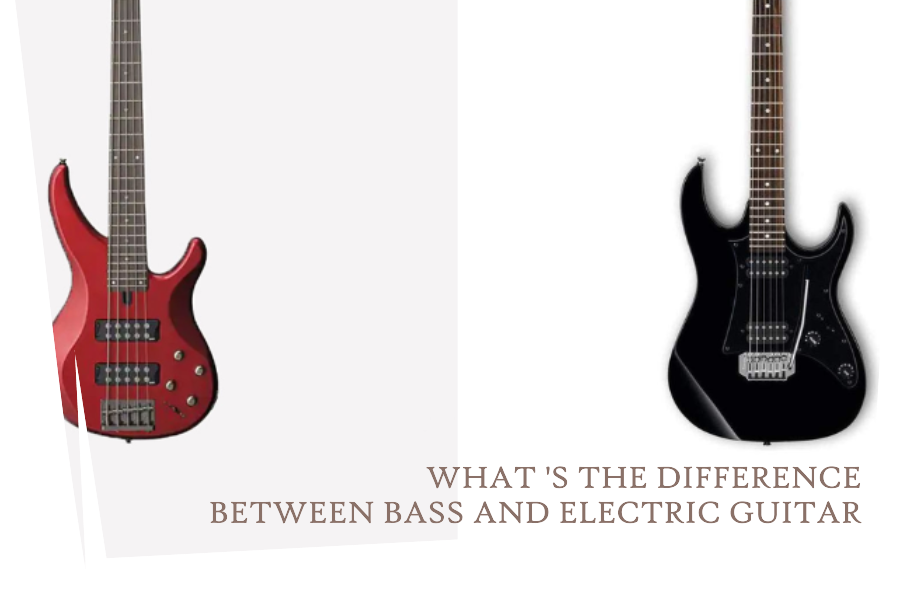
At first glance, one could say the bass guitar often looks like the beefier cousin of the standard electric guitar, with fewer strings to boot.
But, is that all there is to it? Absolutely not, and that’s exactly what we’re diving into today. What’s the difference between bass and electric guitar? It’s more than just size and strings; it’s about the soul of the music they produce and the roles they play in the harmony of a band.
1. Size and Strings
First off, the size difference is quite noticeable. Electric guitars are generally sleeker and more compact, make it easy for you to be versatile in playing technique. On the flip side, bass guitars boast a larger body to accommodate their longer necks, necessary for those deeper tones. This difference in size impacts its playability and the sound it produces.
When it comes to strings, the standard electric guitar typically sports six strings. In while, the bass guitar keeps things simpler with four. The strings on a bass guitar are not only fewer but also thicker. This thickness is essential for producing the deep, resonant sounds characteristic of bass lines in music. Thicker strings mean more mass, which translates to slower vibrations and those lower pitch sounds. That form the backbone of most songs.
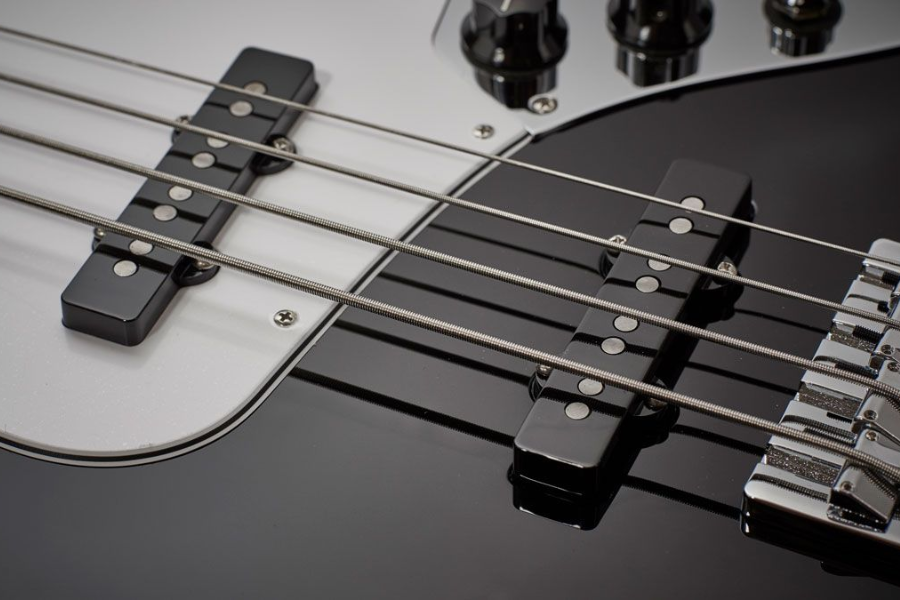
Anyone who’s spent time with these instruments will tell you that bass guitar strings have a reputation for longevity. Thanks to their thickness, they’re less prone to snapping under normal playing conditions. Electric guitar strings break more frequently. This is a trait attributed to their thinner nature and the higher tension needed for those piercing solos and chords.
You’ll quickly notice that bass guitars are generally heavier than electric guitars. This weight comes from their larger size and thicker strings, making them a bit more of a workout to play, especially during long gigs or practices. The lighter electric guitar is easier on the shoulders. It allows for more mobility and, some would argue, more expressive performances.
2. Producing A Note
The electric guitar is often paired with a pick, and here’s why: precision. With a pick, you get to hit those strings with a sharpness and clarity that’s hard to achieve otherwise. This is perfect for genres that love fast solos or intricate rhythms—think rock, metal, or pop. The pick helps those notes come out clean and distinct. That’s exactly what you need when you’re trying to stand out in a song.
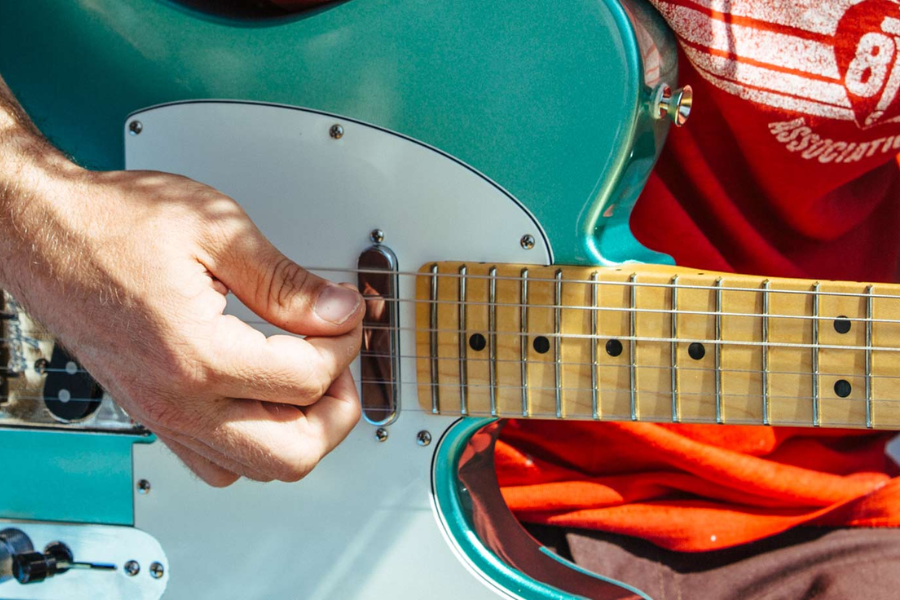
Now, the bass guitar is a bit more laid-back when it comes to this. You can use a pick if you want that punchy sound that cuts through, which works great in rock or punk. But, many bass players love using their fingers. It gives a smoother, more mellow vibe to the bass lines, letting them flow seamlessly with the drums. Plus, fingerstyle lets you get creative with techniques like slapping and popping. It also adds a whole new layer of fun to playing bass.
3. Sound
The bass guitar is the backbone of a band’s sound, focusing on rhythm and depth. It provides the low-end support that every song needs to feel complete. With its clean sound, the bass ensures the music has a solid foundation. When blending seamlessly with the drums, it creates a groove that you can feel as much as hear.
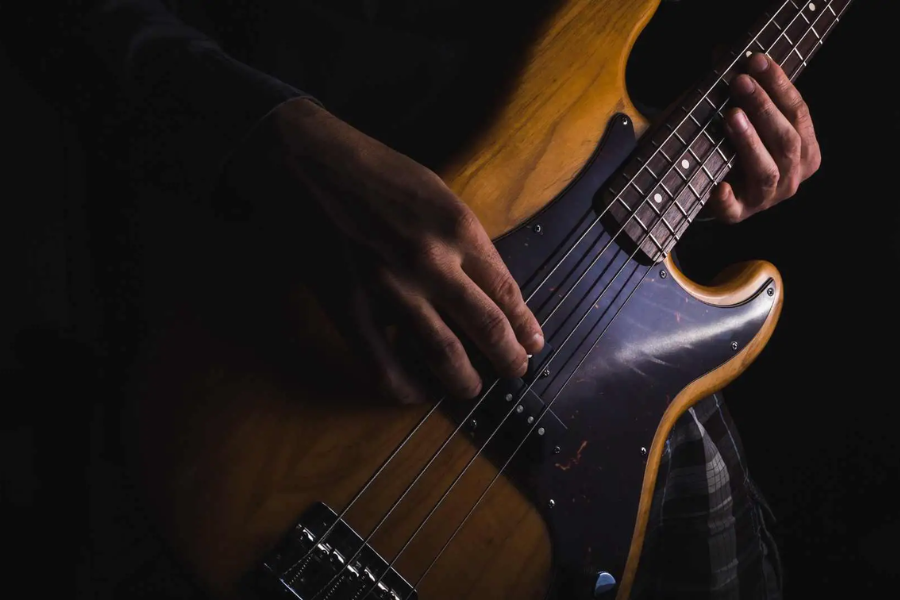
In contrast, the electric guitar often takes the lead role in a band. It’s versatile, capable of delivering everything from rhythmic chords to soaring solos. The electric guitar is where you’ll find the high-energy riffs and emotional melodies that can define a song’s identity.
4. Usability
Bass guitars are larger, requiring bigger cases or gig bags. This means you’ll need more space in your car. You might face challenges fitting it into smaller storage areas or carrying it on public transport. Simply put, the bass guitar’s size can make moving it more of a logistical task.
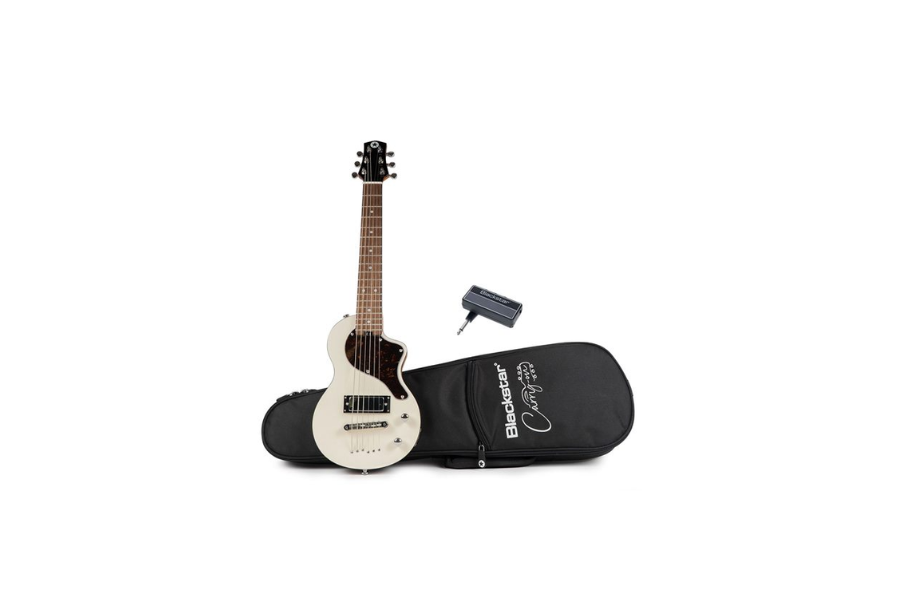
Electric guitars, being smaller and lighter, are generally easier to transport. Their cases are more compact, fitting easily into car trunks, overhead compartments on planes, or alongside you on public transport. If mobility and ease of transport matter to you, the electric guitar scores higher on convenience.
5. Transferability
Jumping from electric to bass guitar, you’ll find that your basic music knowledge like understanding scales, chords, and rhythms- will serve you well. Both instruments operate on similar principles, so you won’t be starting from scratch.
The biggest shift is all about the role you play in a band. The bass is more about setting the groove and working closely with the drums than taking center stage with solos. It’s a rhythm-first mindset, focusing on keeping the beat and enriching the song’s foundation.
While knowing how to play the electric guitar gives you a head start, the bass has its thicker strings and unique playing styles such as slapping and popping. These differences mean there’s a bit of a learning curve, but it’s nothing you can’t handle with practice.
If you play the electric guitar, you’re already on good footing to pick up the bass. Just remember, it’s not just about transferring skills; it’s about adapting to the bass’s unique role and sound. Whether you’re expanding your musical abilities or just curious about the bass. Keep diving in with an open mind will make the transition smoother.
6. Construction
Bass guitars typically have a thicker body than electric guitars. It’s crucial for producing those deep, resonant tones bass players love. Electric guitars, with their slimmer bodies, are built to deliver crisp, articulate sounds that stand out in any melody.
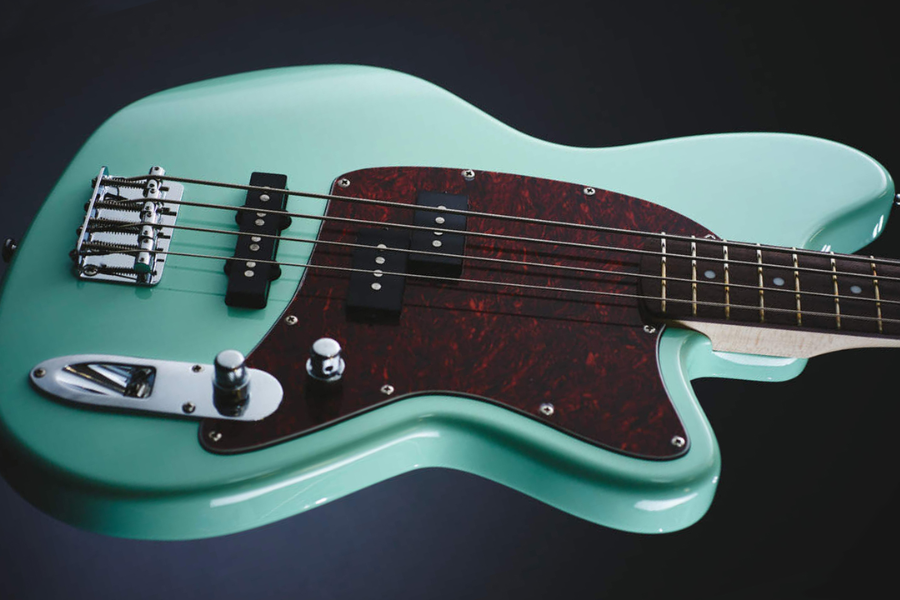
Both types of guitars are often made from a variety of woods, each adding its own sonic signature:
- Alder offers a balanced tone, making it a versatile choice.
- Swamp Ash shines with bright, sweet tones, ideal for clarity.
- Mahogany enriches the sound with warmth and depth, perfect for a fuller feel.
- Maple adds brightness and durability, often used for necks to enhance clarity.
- Pine provides a softer tone, giving guitars a unique character.
The type of wood not only influences the sound but also the weight and feel of the guitar. It contributes to its playability and the music it produces.
7. Scale length
Bass guitars have a longer scale, around 34 to 35 inches. This length is key for those deep, resonate bass tones we all love. It means the strings are a bit tighter, which helps with the clarity of each note you play.
Electric guitars, on the other hand, keep things shorter with a scale length of about 25 inches. This shorter scale contributes to a variety of tones, from bright and punchy to warm and mellow. So it makes for a easier playability, especially for fast solos or complex chord changes.
Scale length influences not just the sound but how the guitar feels in your hands. Longer scales might require a bit more stretch in your fingers, while shorter ones can feel more compact and manageable.
Which Instrument Should You Choose?
Let me share a bit of what I’ve learned about the cool differences between bass and electric guitars. I think it might help you on your own musical adventure:
First up, tuning. Bass guitars are all about those deep vibes, tuned to hit lower notes that fill the room with rhythm. Electric guitars, though, have a higher pitch, letting you play a wide range of tunes, from sweet melodies to rocking solos.
Bass guitars stick to the low end, providing the beats that get your foot tapping. Electric guitars have a broader sound range. It lets you explore everything from high-pitched leads to rhythmic backings.
If you’re diving into bass, remember you’ll need a beefier amp to handle those low frequencies without any buzz or fuzz. Electric guitars are a bit more flexible, working well with various amps, big or small.
Your playing style is a big factor, too. If you love setting the groove and laying down the rhythm, bass might be your calling. Love leading with solos and creating melodies? Electric guitar is where it’s at.
When it comes to price, electric guitars usually have more budget-friendly options. Bass guitars can cost a bit more, mainly because they need more material to create that rich, full sound.
Thinking about joining a band? Bass guitars hold down the fort with the drums, keeping everyone in sync. Electric guitars offer versatility, jumping between supporting rhythms and taking the spotlight with solos.
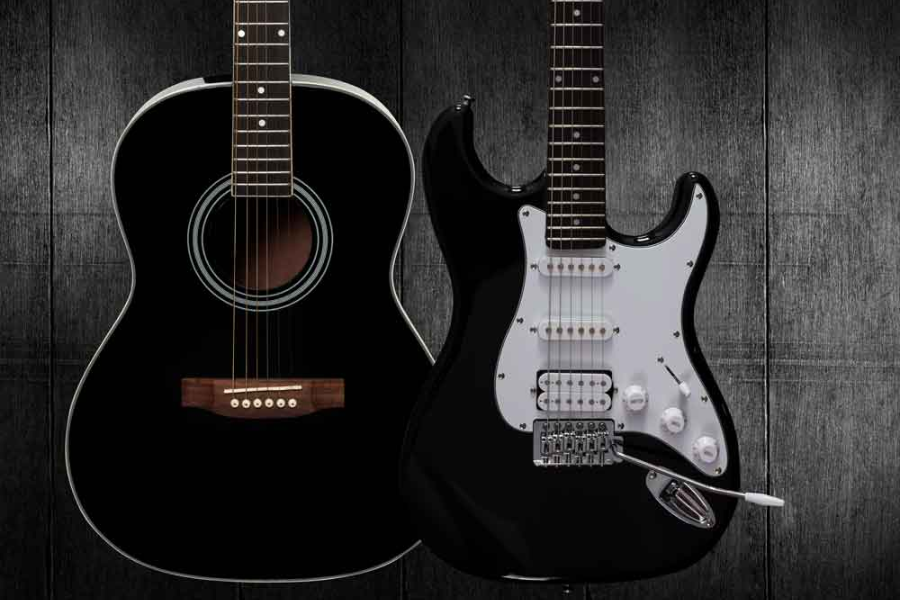
Picking between bass and electric depends on what sounds you’re drawn to and how you see yourself jamming. There’s no right or wrong choice—just what feels right for your musical journey.
Final thoughts on the difference between bass and electric guitar
I’m here to share some friendly advice to help you make a choice that resonates with your musical aspirations and personal style. Consider where you see yourself in a band or as a solo artist. Do you dream of laying down the groove and setting the rhythm, or do you aspire to lead with high-energy solos and intricate melodies?
If possible, try out both instruments. Many music stores offer the opportunity to play different guitars, which can be incredibly helpful. The physical feel and sound might instantly sway you one way or the other.
Whichever instrument you choose, embrace it fully and enjoy the journey of musical discovery. Remember, the best instrument for you is the one that you’re most excited to play every day. Keep strumming, keep grooving, and let your passion for music lead the way.








